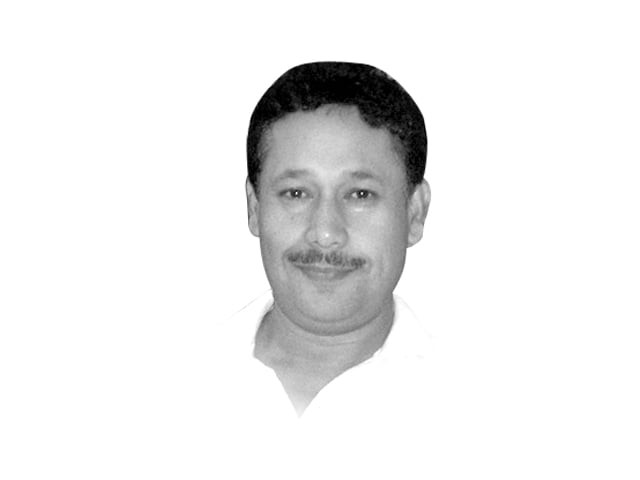National security policy — the Baloch perspective
Bureaucratically-drafted, the national security policy lacks understanding and discounts the existence of conflicts.

The writer was a member of the Senate from 2003-08 and of the National Assembly from 1997-99. He tweets
@Senator_Baloch
The previous PPP regime introduced an unrealistic 3D formula — development, deterrence and dialogue — to curb violence without understanding the difference between complex conflicts and geographically disconnected crises. However, the new PML-N government has recently announced a theoretically more complex policy to deal with endless violence and the worsening law and order challenges. Based on Chinese and Malaysian models, the five layers of the national security policy, prepared by the National Counter-Terrorism Authority are: to dismantle, to contain, to prevent, to educate and to reintegrate.
Economically fragile, politically unstable, ethnically divided and strife with sectarian crisis, the ruling elite need to understand before duplicating these that Pakistan is neither equal to economic giant China nor to economically self-reliant Malaysia. And both countries, set as models in the new policy, have never experienced such ethnic discontent, political crises and extreme violence.
The current five-pillar policy looks like mixing oranges and apples. The policy doesn’t differentiate between type of crises and violence and doesn’t have the feel of a serious conflict-resolution initiative. It’s a known fact that crises in Fata and Khyber-Pakhtunkhwa (K-P) need a totally different approach and dealing with unrest in Balochistan requires a unique and bold policy. Moreover, managing the sectarian menace requires both domestic and international efforts.
In spite of thousands of killings, loss of property and humanitarian crises both in K-P and Balochistan, the civil-military elite in Islamabad are in total denial about the existence of politico-economic conflicts in Balochistan and governance-related conflict in Fata.
For conflict-resolution and crisis management, there are three preconditions: acknowledgment, acceptance and adaptability. Bureaucratically-drafted, the national security policy lacks understanding and discounts the existence of conflicts. It would be of no use in addressing the protracted crises.
Regarding Balochistan, the government and its politico-military appendage must demonstrate maturity and acknowledge the conflict’s existence, rather than trying to deny it. The politico-military establishment needs flexibility and adaptability. Adaptability requires openness to ideas that could lead to viable solutions. A firm commitment and resolve, with the flexibility to make concessions, will determine how those solutions will be implemented.
A national security policy, which begins with the idea of “dismantling”, cannot be considered a wise or constructive approach to deal with national crises. The policy should guide national decision-making and determine the courses of action to be taken in order to attain the state or condition wherein the national interests, the well-being of people, and peace and security are protected and enhanced.
The policy must encourage the political-military leadership to acknowledge past mistakes and the existence of multifaceted conflicts — accept the existence of different stakeholders and adapt new ideas and approaches in the conflict-resolution process. Pakistani policymakers must not confuse, and should not avoid the fact that extremism and violence is an offshoot of our politico-military blunders. If we continue to maintain the administrative status quo in Fata for strategic reasons — consider criminals, mafias and extremists as “strategic assets” and political activists as a national threat in Balochistan — peace will have little chance to grow.
Adapting a multilayered conflict- resolution model — Pakistan’s national security policy should focus on four key elements namely: 1) governance; 2) delivery of basic services; 3) economic reconstruction and sustainable development; and 4) security sector reform.
Published in The Express Tribune, July 10th, 2013.
Like Opinion & Editorial on Facebook, follow @ETOpEd on Twitter to receive all updates on all our daily pieces.















COMMENTS
Comments are moderated and generally will be posted if they are on-topic and not abusive.
For more information, please see our Comments FAQ